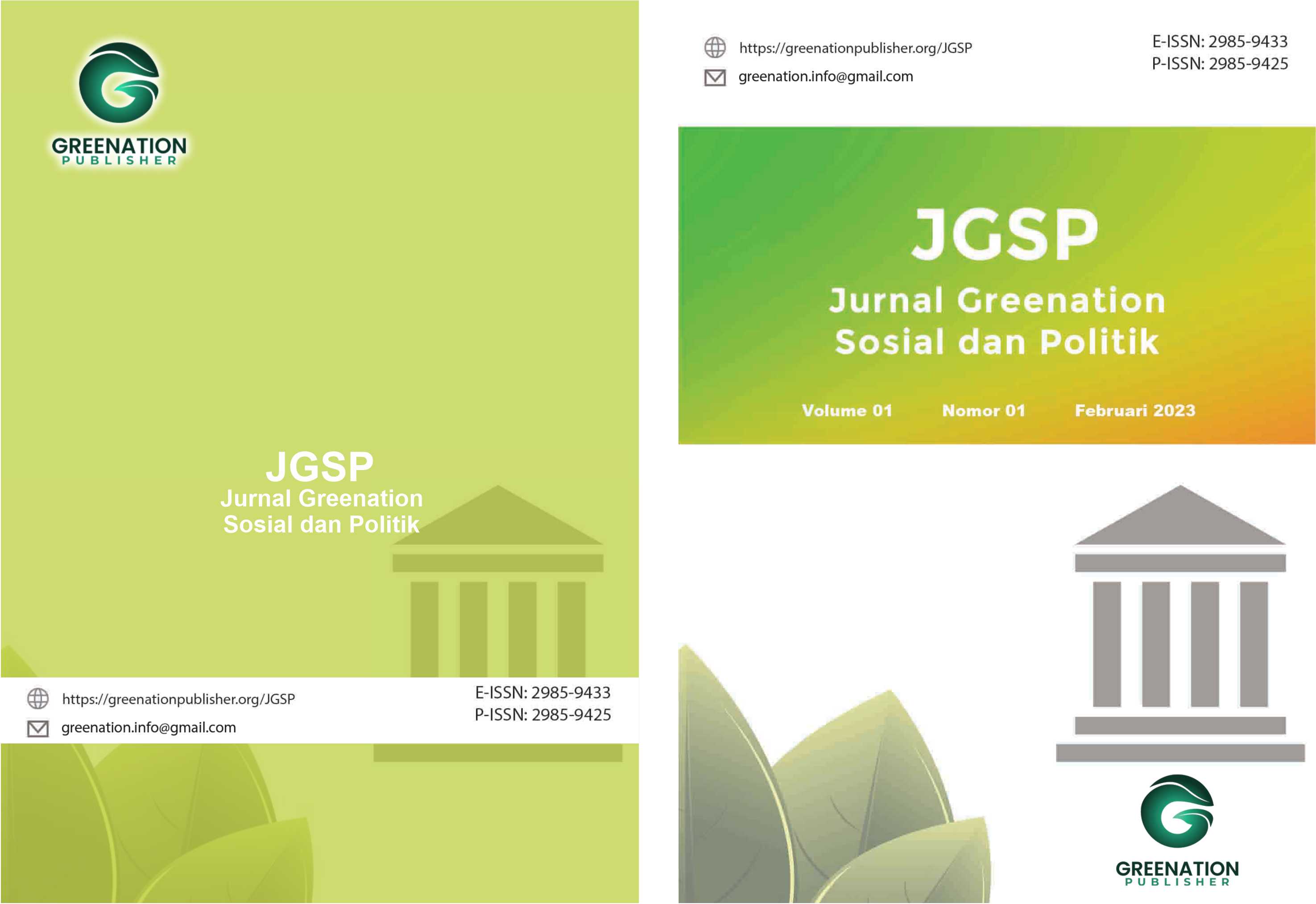The Influence of Authoritarian Political Configuration in The Presidential Government System on Constitutional Court Decisions
DOI:
https://doi.org/10.38035/jgsp.v3i2.359Keywords:
Authoritarian Political Configuration, Constitutional Court DecisionsAbstract
The authority of the Constitutional Court, which should ideally result in independent decisions free from external influence, has proven to be very difficult to achieve. This is because the decisions of the Constitutional Court are also influenced by political interests. This situation places society, as seekers of justice, in a challenging position when dealing with disputes in the Constitutional Court, as it is not easy to confront the political interests of those in power. The legitimacy of political power formed through group dynamics creates an authoritarian political configuration, which not only impacts the democratic life of a nation but also undermines the enforcement of law. In terms of state governance, Indonesia explicitly acknowledges a democratic political configuration as enshrined in its Constitution, which firmly recognizes Indonesia as a democracy based on Pancasila. Changes in the practice of democratic politics have significantly affected various legal aspects in Indonesia, including legal politics, legal products, and even the decisions of the Constitutional Court (MK), which holds the authority to adjudicate and decide cases related to judicial review. Ultimately, the Constitutional Court has also become part of state institutions affected by the shift from democratic political practices to authoritarian political configurations. This research is conducted normatively using primary data derived from Constitutional Court Decisions Number 90/PUU-XXI/2023, 60/PUU-XXII/2024, and 70/PUU-XXII/2024, focusing on the outcomes of decisions influenced by political interest tendencies. The research data is also supplemented by other sources obtained through legal literature and information from various media. The results of the research conducted found that: The position of the Constitutional Court as a state institution within a presidential system is not one that operates independently, despite being part of the judiciary. The system of separation of powers allows for the Constitutional Court to be influenced by both executive and legislative powers. In an authoritarian political configuration, the creation of large coalitions in the legislative and executive branches automatically leads to dominance that directly affects the decisions of the Constitutional Court. This is due to the composition of judges on the Constitutional Court, which consists of three judges nominated by the President, three by the DPR (House of Representatives), and three by the Supreme Court.
References
Abdulrahman Darojat. Triwahyuningsih, Hubungan Eksekutif Legislatif 2009 – 2014, Yogyakarta: Tiara Wacana, 2017.
Andrew Shandy Utama. Toni, “Pengaruh Rezim Politik Terhadap Karakter Produk Hukum di Indonesia,” Journal of Criminology and Justice, no. Volume 1, Nomor 1, pp. 1-5, 2021.
Frans Magnis Suseno dalam Muhammad Erwin, Filsafat Hukum, Refleksi Kritis terhadap Hukum dan Hukum Indonesia dalam Dimensi Ide dan Aplikasi, Depok: Rajawali Pers, 2018.
Ida Budhiati, Mahkamah Konstitusi dan Kepastian Hukum Pemilu, Jakarta: Sinar Grafika, 2020.
Irfan Maulana, “Mahfud MD Pastikan Kemenko Polhukam Tak Akan Intervensi Perkara yang Ditangani MK,” Sindo News.com, , [Online]. Available: https://nasional.sindonews.com/read/1216449/13/mahfud-md-pastikan-kemenko-polhukam-tak-akan-intervensi-perkara-yang-ditangani-mk-1696320655.
Jimly Asshiddiqie, Konstitusi dan Konstitusionalisme Indonesia, Jakarta: Sinar Grafika, 2011.
Jimly Asshiddiqie, Pengantar Ilmu Hukum Tata Negara – Jilid II, Jakarta: Sekretariat Jenderal dan Kepaniteraan MK-RI, 2006.
K. Bartens, Sejarah Filsafat Yunani – Dari Thales Ke Aristoteles, Yogyakarta: Kanisius, 1999.
M. Yamin, Naskah Persiapan Undang-Undang Dasar 1945, Jakarta: Siguntang, 1971.
M. Yamin, Pembahasan Undang-Undang Dasar Republik Indonesia, Jakarta: Prapanca, 1960.
Mahfud MD, Demokrasi dan Konstitusi di Indonesia, Jakarta: Rineka Cipta, 1993.
Mahfud. MD, Konstitusi dan Hukum Dalam Kontroversi Isu, Jakarta: RajaGrafindo Persada, 2009.
Mahfud. MD, Politik Hukum di Indonesia, Depok: Rajawali Press, 2018.
Muhaimin, Metode Penelitian Hukum, Mataram: Mataram University Press, 2020.
Muhammad Erwin, Filsafat Hukum, Refleksi Kritis terhadap Hukum dan Hukum Indonesia dalam Dimensi Ide dan Aplikasi, Depok: Rajawali Pers, 2018.
P. M. Marzuki, Penelitian Hukum, Jakarta: Kencana, 2010.
Salim Said, Wawancara Tentang Tentara dan Politik, Jakarta: Pustaka Sinara Harapan, 2001.
Soehino, Ilmu Negara, Yogyakarta: Liberty, 1980.
Titik Triwulan dan Ismu Gunadi Widodo, Hukum Tata Usaha Negara dan Hukum Acara Peradilan Tata Usaha Negara Indonesia, Jakarta: Kencana Pranedamedia Group , 2014.
Downloads
Published
How to Cite
Issue
Section
License
Copyright (c) 2025 Jetter Wilson Salamony, Faisal Santiago

This work is licensed under a Creative Commons Attribution 4.0 International License.
Hak cipta :
Penulis yang mempublikasikan manuskripnya di jurnal ini menyetujui ketentuan berikut:
- Hak cipta pada setiap artikel adalah milik penulis.
- Penulis mengakui bahwa Jurnal Greenation Sosial dan Politik (JGSP) berhak menjadi yang pertama menerbitkan dengan lisensi Creative Commons Attribution 4.0 International (Attribution 4.0 International CC BY 4.0) .
- Penulis dapat mengirimkan artikel secara terpisah, mengatur distribusi non-eksklusif manuskrip yang telah diterbitkan dalam jurnal ini ke versi lain (misalnya, dikirim ke repositori institusi penulis, publikasi ke dalam buku, dll.), dengan mengakui bahwa manuskrip telah diterbitkan pertama kali di JGSP.
























